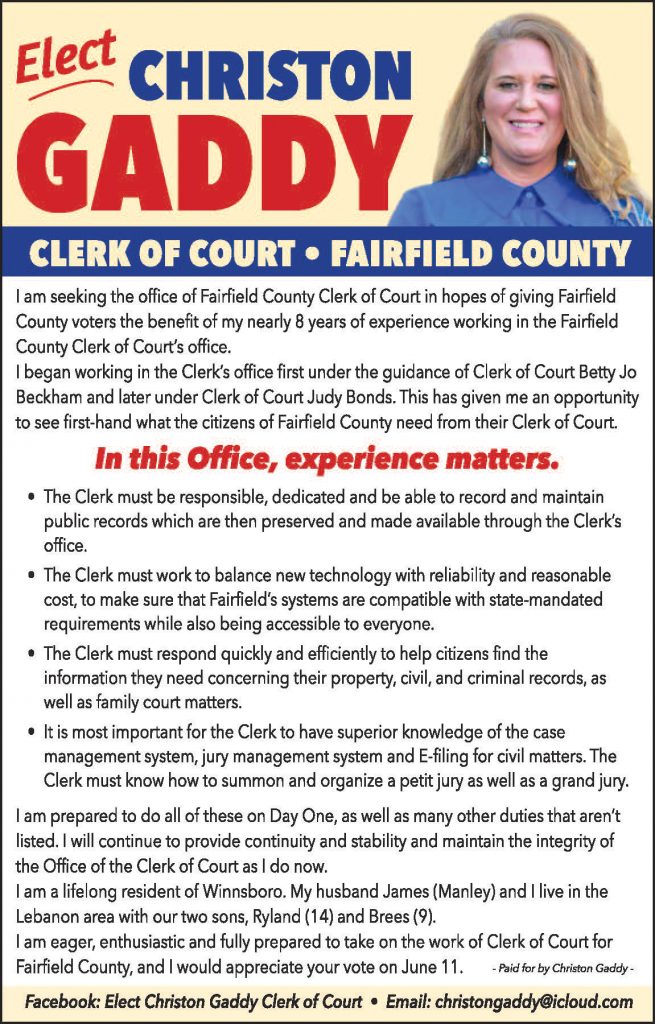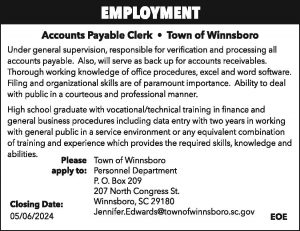Council Seeks to Add DHEC Permits, Insurance, Zoning Requirements
BLYTHEWOOD (March 2, 2017) – Town Council Monday night made another abortive pass at an ordinance regulating itinerate merchants and vending stands within the Town Center District (TCD). Unlike last month’s attempt, however, when Council faced considerable public backlash for its efforts, Monday night a handful of citizens – including one merchant who would be directly impacted by the proposed rules – spoke out in favor of some form of regulation.
“There really needs to be regulation so roadside services, roadside stands that come up, whether they’re selling food or products, that they’re fully compliant with all the town’s regulations,” Tom Duka told Council during the Citizens’ Testimony portion of the meeting. “When somebody builds an actual brick-and-mortar structure to have a store or restaurant or facility, they’re making a definite investment, but some of these vending stands that are coming through town are very temporary in nature. We want to make sure that people who make an investment in town by actually complying with the zoning, by complying with the building regulations, are the ones who are most protected, as long as they are following regulations as well.”
Scott Opolyn, owner of Scotties Restaurant, told Council he was concerned that mobile food vendors may not have obtained their appropriate inspections from the Department of Health and Environmental Control (DHEC). Opolyn also said any new regulations should ensure that mobile vendors are properly insured and that they meet the town’s zoning regulations.
“I personally think that having food trailers that would come here is great, but you don’t want to make Blythewood a Gypsy city, either,” Opolyn said. “Which means we have to set rules and regulations.”
The key word in defining an itinerate merchant, Opolyn said, is “mobile,” and Council’s proposed ordinance would require such merchants to remove their vending stands from the TCD at the close of each business day. But a loophole could appear, Opolyn said, if Council failed to also regulate hours of operation.
“If they’re open 24-hours a day, seven-days a week, well I guess there’s nothing to move,” he said. “But it still comes down to cleanliness. How are they going to clean their trailers? They’re mobile. They don’t carry a lot of water. Where do they use the bathrooms? What about the people who are eating there and drinking there if they’ve got to go? You don’t want them urinating in a jar and pouring it outside their trailer. It’s not a public toilet. This is where we live.”
Matt Beyer, owner of Grace Coffee Company, said he was not opposed to Council regulating mobile vendors. The iconic coffee trailer at 208 Main Street, which has found itself at the center of the debate, would be directly impacted by any new laws governing itinerate merchants and vending stands.
“I think there should be some regulations,” Beyer said. “You should regulate us, to a degree. I think we all in this room need to figure out how to work it out and create a win for all of us.”
Although the company was indeed a mobile enterprise when they opened for business three months ago, Beyer said, they have since become fixed to their spot on Main Street.
“We look mobile, but we’re not anymore,” Beyer said. “What we have inside, it’s not just a hassle to move, it’s not possible. So it’s either we’re here or we’re not.”
Councilman Tom Utroska, who was absent from last month’s meeting when the initial first reading on the ordinance was postponed, said Monday night that he had “a real issue” with the proposed rules.
“Let’s say we have somebody that comes in a purple and red and orange truck that wants to park in the Town Center District,” Utroska said. “We won’t let people build buildings that look like that, but we’re going to say it’s OK to park your truck there. It kind of seems like it’s a slap in the face to the business owners. I think there needs to be some standards.”
Utroska also said he felt Council should ensure that mobile food vendors have any necessary DHEC permits, and that mobile vendors of any sort should have liability insurance.
The proposed ordinance presented Monday night included one minor addition to the version presented last month – a grandfather clause that would allow any vending stand in lawful operation at the time of first reading to continue to operate without regard to the daily removal requirement. But Utroska said he thought existing vendors should be given 60 days to comply.
“I don’t think we give them perpetuity,” he said. “I am not happy with this ordinance. It doesn’t say anything about them having to have a DHEC permit, it doesn’t say anything about insurance. It doesn’t say anything about the Town Administrator being able to decide whether or not you can park in a certain location, that the color may not fit in with the zoning. There’s a lot of things I don’t see in the ordinance.”
Jim Meggs, the Town’s attorney, reminded Council that the original model ordinance he had presented to them included a veritable laundry list of detailed regulations, but Council had rejected that as too stringent. The version presented last month, he said, had been pared down to simply requiring vendors to pull up stakes are the end of each business day.
“Somewhere there’s a happy medium,” Utroska said. “I think there has to be some modicum of restriction. I do think they have to move every day. And if their colors are so garish they wouldn’t be allowed, they shouldn’t be here.”
Mayor J. Michael Ross asked Utroska to work with Meggs to develop a broader ordinance. A third version, Utroska agreed, should be ready for Council’s March 27 meeting. Council’s agenda for Saturday’s annual retreat also includes discussion of the ordinance. The retreat begins at 9 a.m. at The Manor.












